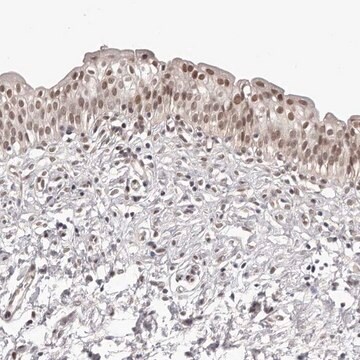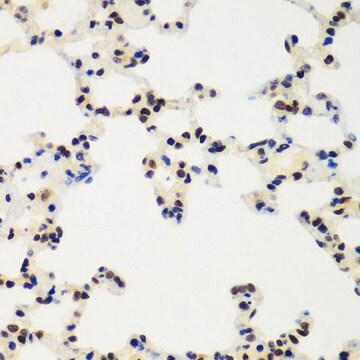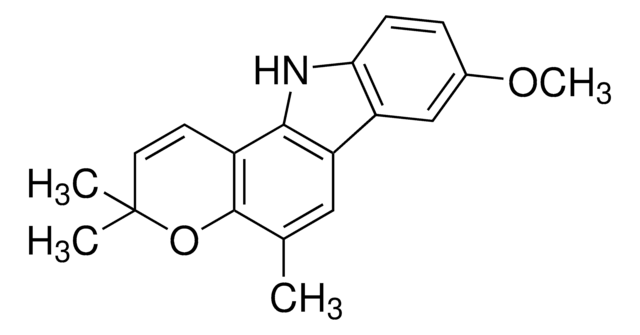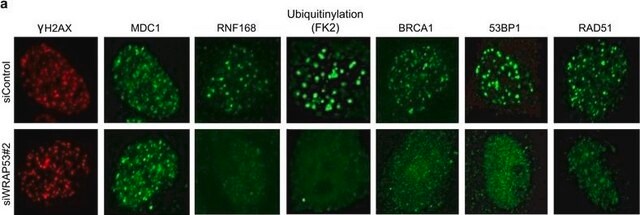MABE1069
Anti-BAP1 Antibody, clone 3C11
clone 3C11, from mouse
Synonym(s):
Ubiquitin carboxyl-terminal hydrolase BAP1, EC 3.4.19.12, BRCA1-associated protein 1, Cerebral protein 6
About This Item
Recommended Products
biological source
mouse
Quality Level
antibody form
purified immunoglobulin
antibody product type
primary antibodies
clone
3C11, monoclonal
species reactivity
human
technique(s)
immunoprecipitation (IP): suitable
western blot: suitable
isotype
IgG1κ
NCBI accession no.
UniProt accession no.
shipped in
ambient
target post-translational modification
unmodified
Gene Information
human ... BAP1(8314)
Related Categories
General description
Specificity
Immunogen
Application
Epigenetics & Nuclear Function
Western Blotting Analysis: A representative lot detected BAP1 in Western Blotting applications (Abdel-Wahab, O., et. al. (2012). Cancer Cell. 22(2):180-93).
Immunoprecipitation Analysis: A representative lot detected BAP1 in Immunoprecipitation applications (Abdel-Wahab, O., et. al. (2012). Cancer Cell. 22(2):180-93).
Quality
Western Blotting Analysis: A 1:125 dilution of this antibody detected BAP1 in 10 µg of lysate from HEK293T cells overexpressing BAP1.
Target description
Physical form
Storage and Stability
Other Notes
Disclaimer
Not finding the right product?
Try our Product Selector Tool.
Storage Class Code
12 - Non Combustible Liquids
WGK
WGK 1
Certificates of Analysis (COA)
Search for Certificates of Analysis (COA) by entering the products Lot/Batch Number. Lot and Batch Numbers can be found on a product’s label following the words ‘Lot’ or ‘Batch’.
Already Own This Product?
Find documentation for the products that you have recently purchased in the Document Library.
Our team of scientists has experience in all areas of research including Life Science, Material Science, Chemical Synthesis, Chromatography, Analytical and many others.
Contact Technical Service








